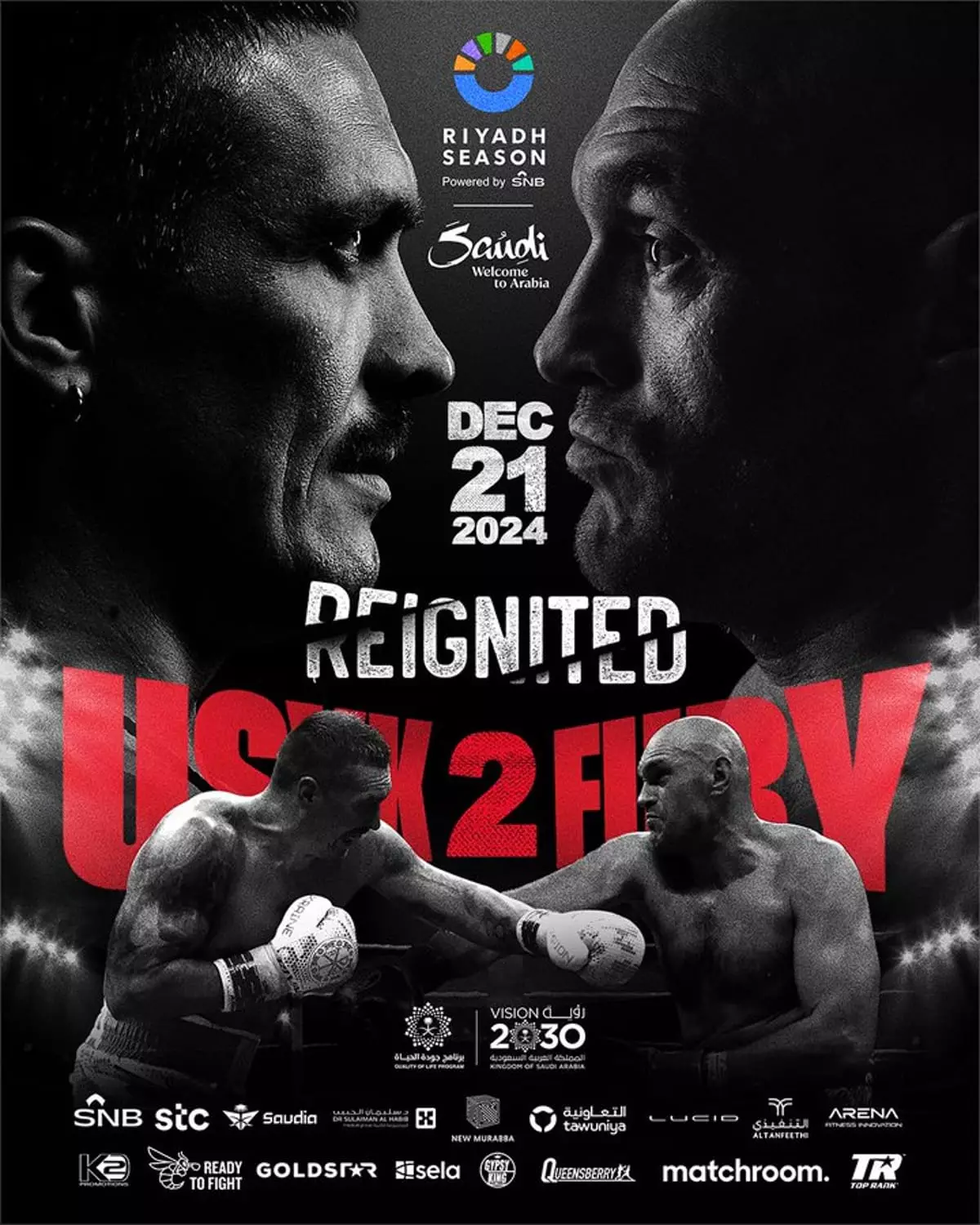As the boxing world gears up for the highly anticipated rematch between Tyson Fury and Oleksandr Usyk on December 21st, the conversation is rife with speculation and scrutiny. Fury, the former WBC champion, has made waves on social media, asserting that the three heavyweight titles currently held by Usyk will soon be his again. This proclamation, while characteristic of Fury’s brash personality, raises questions about his readiness and tactical prowess following their last encounter.
Stepping into the ring with a record of 34 wins, 1 loss, and 1 draw, Fury’s past accomplishments cannot be ignored; however, the simmering doubts surrounding his capabilities are palpable. Fans and analysts alike are skeptical of his chances against Usyk, who stands unbeaten at 22-0. Many observers attribute this skepticism to Fury’s appearance—his stockier build suggesting less agility and endurance—and how he was nearly finished in the last bout, notably when the referee controversially intervened to halt the action.
Critics argue that Fury looks sluggish and unprepared for the fast-paced style that Usyk presents. The previous bout exposed vulnerabilities that, to some, indicated a need for a significant overhaul in Fury’s strategy. His reliance on a game plan that seemed unrefined came under scrutiny, prompting questions about the efficacy of his training team, particularly SugarHill Steward, who might have looked overwhelmed during crucial moments of the fight.
Rematch Dynamics: A Different Approach Needed
Fury’s assertion that he will come back stronger in this rematch indicates an acknowledgment of the necessity for change. His claim that “my rematches only end in one way” reflects a belief in his past successes but ignores the evolution of competition. Unlike his earlier rematches against boxers like Deontay Wilder, Dereck Chisora, and John McDermott—fighters who, while dangerous, do not represent the refined skill and strategy of Usyk—Fury is now facing a fighter who has demonstrated a superior boxing intelligence.
Fury’s reliance on past victories can be misleading; those matches occurred years ago when he was in a different physical and mental state. Transitioning from a fighter with a different ring IQ and physicality to facing Usyk’s complexities requires more than a mere hope to regain swagger. It demands a meticulous reworking of Fury’s game plan.
Psychology and Presence: Usyk’s Advantage
Usyk’s demeanor during promotional events emphasizes his mental edge. Observers have noted his focused intensity, which starkly contrasts with Fury’s bravado. The “hitman assassin” persona that Usyk projects signifies a fighter who is not merely physically prepared but mentally poised to capitalize on any opportunity. Usyk’s ability to maintain focus under pressure—eloquently showcased during the face-off—is a vital aspect that could tilt the fight in his favor.
Fury’s past evidence of volatility presents a double-edged sword. While it might energize his supporters, his tendency to become disoriented when things do not go his way could be detrimental against a seasoned strategist like Usyk, who possesses the capacity to exploit emotional distractions within the ring.
As the countdown to December 21st continues, it remains crucial for Fury to convert his bravado into tangible improvements. His confident proclamation of reclaiming the belts must be supported by a coherent strategy and revitalized training approach. He must work closely with his team to address previous failures and prepare for the unique challenges Usyk presents, focusing not just on what has worked in past rematches but also on how to adapt to a fighter of Usyk’s caliber.
Combining agility, mental toughness, and an enhanced tactical framework could determine the outcome of this monumental showdown. As fans eagerly await, the question remains: can Tyson Fury rise to the occasion and truly reclaim his titles, or will Oleksandr Usyk once again assert his dominance in the heavyweight division?

